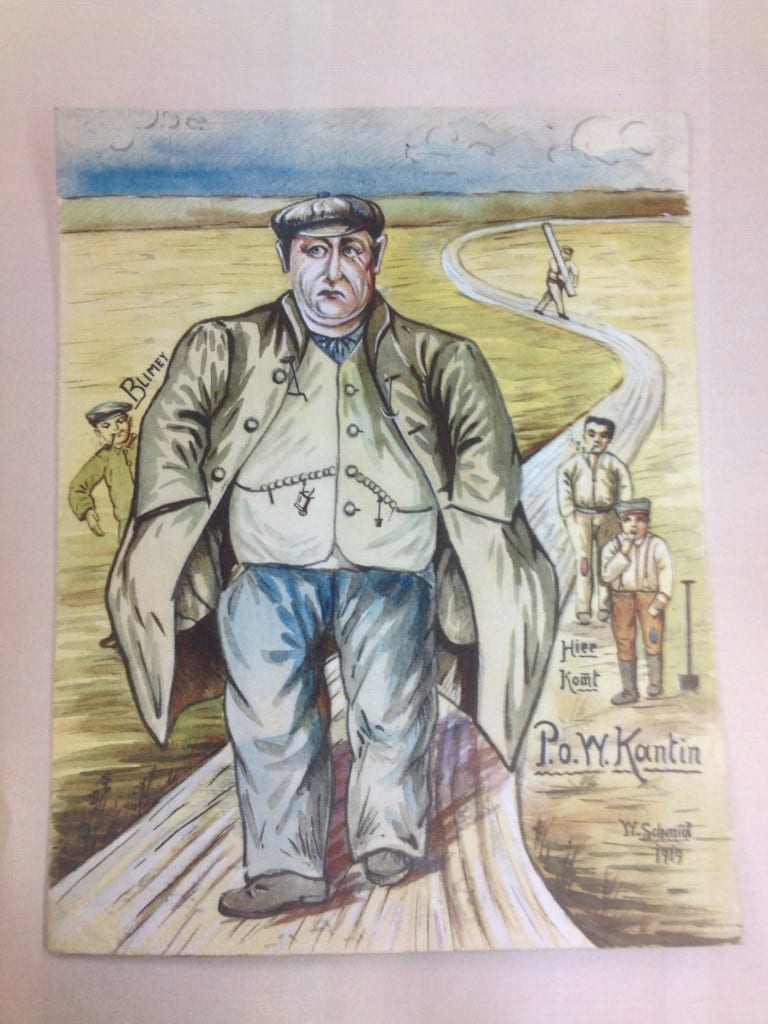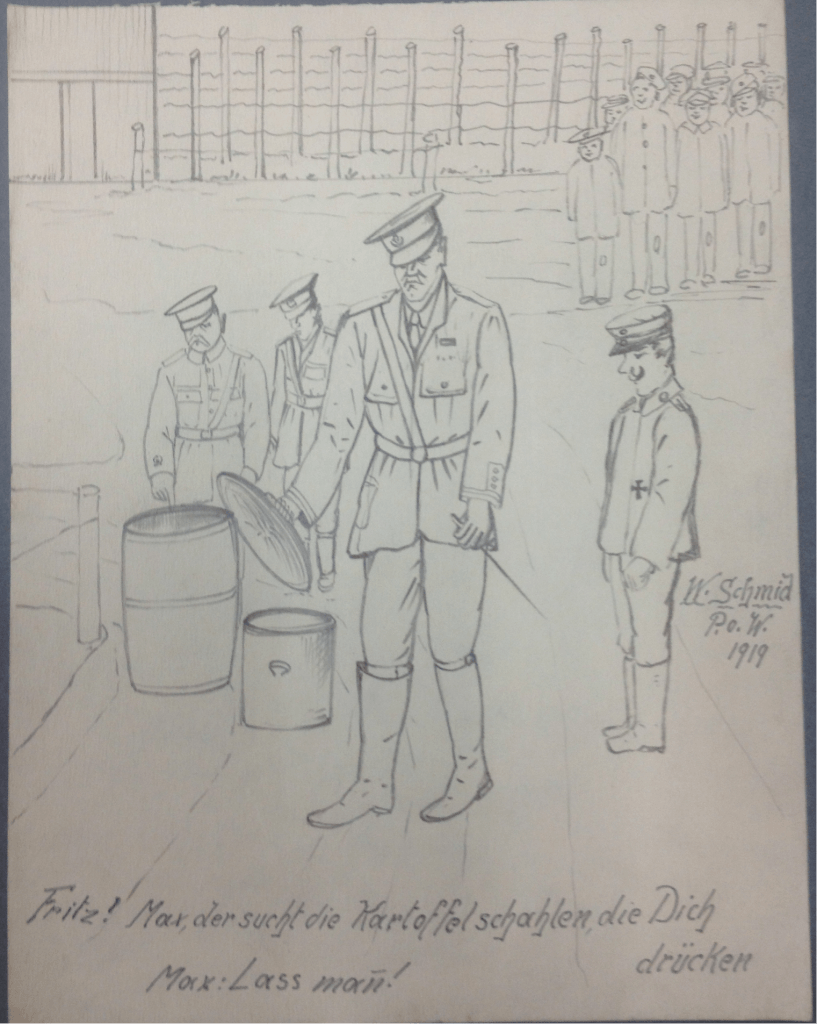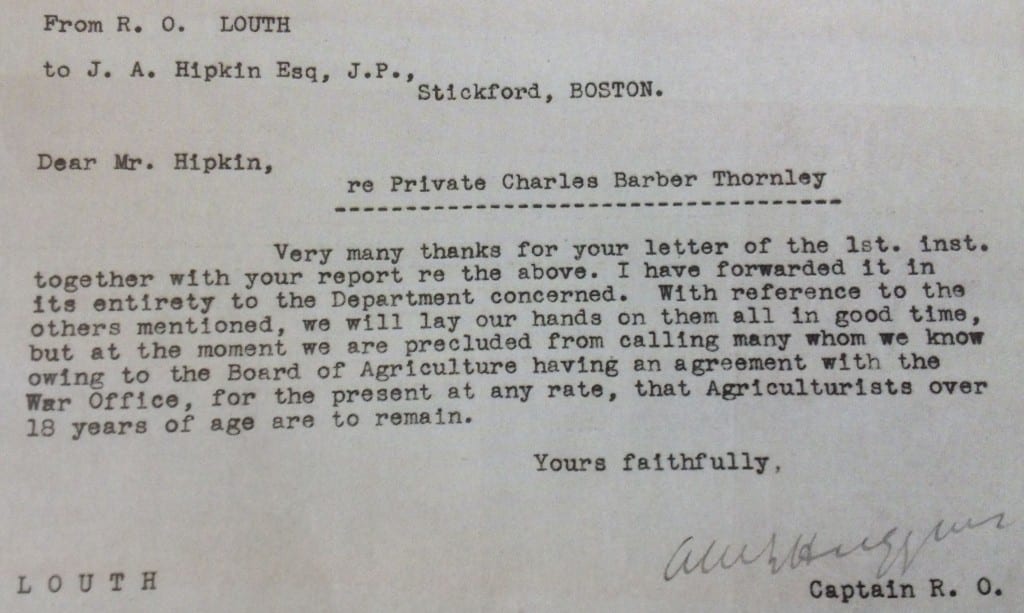Co-Investigator: Prof. Jane Chapman
Research Assistant: Andrew Kerr  As part of the First World War Engagement Centre Everyday Lives in War researchers at the University of Lincoln are investigating how the war affected daily life between 1914 and 1918. The centre – hosted by the University of Hertfordshire in collaboration with the Universities of Essex, Northampton, Exeter, Lincoln and Central Lancashire – is one of five funded by the AHRC and the HLF. The aim is to connect and encourage academic and community research on the First World War as part of the centenary.
As part of the First World War Engagement Centre Everyday Lives in War researchers at the University of Lincoln are investigating how the war affected daily life between 1914 and 1918. The centre – hosted by the University of Hertfordshire in collaboration with the Universities of Essex, Northampton, Exeter, Lincoln and Central Lancashire – is one of five funded by the AHRC and the HLF. The aim is to connect and encourage academic and community research on the First World War as part of the centenary.
The team are researching the topics below and would welcome ideas from individuals or groups on these themes:
- Cartoons, trench publications and popular culture
- Conscientious objection and military tribunals
- First World War food and farming
- Theatre and entertainment
- Supernatural beliefs
- Childhood
- Family relationships
Please contact: akerr@lincoln.ac.uk
Prisoners of war
Though negligible until 1917, the number of prisoners of war working in agriculture was almost double the size of the Women’s Land Army by the end of the war. This aspect of everyday agricultural life in south Lincolnshire breaks new ground by seeking to account for the role of POWs through the eyes of the enemy as recorded in the paintings and cartoons of a German prisoner, W. Schmid, working in south Lincolnshire.
The History and Legacy of Sutton Bridge POW Camp
The painting below shows the importance of POW Kantin. Evidently he was an influential local figure and further research into life at the camp is seeking to find out more. The articles hanging from his jacket and waistcoat are not brooches but equipment essential to the labour undertaken by the prisoners such as a pick-axe, a shovel, a wheelbarrow and a brush.
Who Poisoned the Camp Boss?
In this cartoon the British officer in charge of the camp is looking for the potato peelings from the meal that made him ill the day before.
The Cartoons of W. Schmid
Research conducted into 34 separate illustrations drawn by W. Schmid, a German POW held at Sutton Bridge camp between 1917 and 1919, shows that cartoons present unique insight into the daily life and experience of prisoners during the First World War. As well as providing entertainment, these cartoons constitute a discursive space in which the prisoners could express their identity. They often contain instances of social commentary and provide a record of this little-explored aspect of British home front life during the conflict.
What Next?
The team are pursuing research questions concerning life in the camp, the contribution that prisoners’ labour made to the local area, and their involvement with the local community. By working with other groups locally and nationally the team intends to find out more detail about the camp and its legacy on the British home front.
Agricultural employment and conscription
During the debate that led to conscription and the Military Service Act, 1916, there was growing concern that the drive for increased recruitment failed to make adequate provisions for the protection of agricultural labour. Professor Chapman and Andrew Kerr have conducted research into the connections between the agricultural community and rural local tribunal cases for exemption from conscription in South Lincolnshire. Agriculture was a matter of great importance and had a dramatic effect on the decisions of local and regional rural tribunals when compared to those of more urban areas. This research has raised a number of issues concerning tensions between recruitment officers, the Board of Agriculture and local farming families. For example, the military representative in another part of Lincolnshire wrote the note below detailing this tension and exhibiting optimism that, despite the War Office decree that agriculturalists over 18 years of age are to remain exempt from conscription, “we will lay our hands on all of them in good time.”
King’s Lynn and Norfolk
Further research is exploring how the issues raised concerning rural tribunals in Lincolnshire apply to another highly agricultural area in Norfolk and to identify suitable archives at the King’s Lynn museum. As part of the project, a mock tribunal at the newly restored 19th century court house at King’s Lynn is in development with the help of local historians. This interactive education day will help local school children to understand an important aspect of local history and to experience the tensions between conscription and agriculture first hand in a role-play scenario based on archival research.





